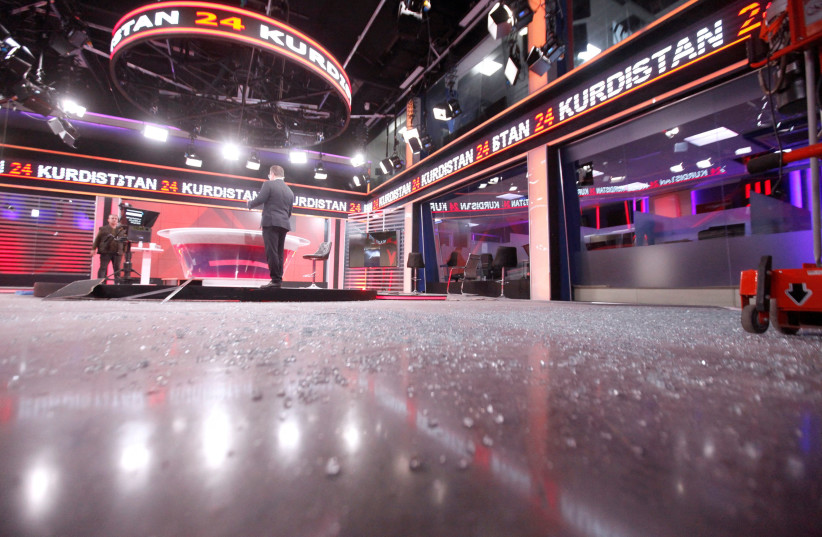Since Iran’s Islamic Revolutionary Guard Corps (IRGC) fired 12 missiles against a US facility in the Erbil Kurdish portion of Iraq earlier this week, the American response, on a concrete level, has been mute.
True, several top US officials made the rounds on TV and issued public statements saying the US had not been the target. But this approach by the Biden administration has only further uncovered the chasm between how Jerusalem and Washington perceive the Iranian threat.
Israel takes every Iranian or proxy attack seriously, and always responds with kinetic force to any physical attack, sometimes by hitting back with greater force to deter future attacks.
Israel also has occasionally said that Hamas rocket fire was unintentional when rockets have been fired from Gaza in small numbers during a time of quiet.
If top Israeli political and defense officials were not prepared for an escalation and a greater exchange of fire between the sides, then they would downplay the significance of the rocket fire as originating from a splinter group without authorization from top Hamas officials.

So Israel also picks and chooses when to respond and when to downplay response to rocket fire, especially if no one is hurt, as with the Iranian attack on the US facility.
But that is where the similarities end.
For Israel, even when it downplays attacks from Hamas and does not initiate a major retaliation, there is almost always at least some low-level immediate retaliation.
A splinter Hamas group fired missiles on an Israeli population center without hitting anyone? Fine, says Israel, and proceeds to bomb an empty Hamas warehouse to still collect a calibrated cost and send a message that no attack is for free.
The American approach – unless there is a response later today or soon (which would still be slower than any Israeli retaliation) – is for no military response at all, and merely a public condemnation and vague references to working with partners.
Incidentally, it is quite possible that the US was not the target.
The IRGC and reports quoted by Iranian media mentioned the US facility being hit, but focused their wrath on allegedly targeting Mossad operations in the Kurdish area. This could all be true.
For more than a decade there have been periodic reports alleging rampant infiltration by the Mossad into Iran via various Kurdish areas, whether from Iraq or through Kurds in Iran itself.
So maybe there was no specific Mossad facility there, but the Islamic Republic wanted to increase the cost for the Kurds of any cooperation anywhere with the Mossad in which they might be involved.
Or maybe the Mossad has nothing to do with it, and the whole thing is a clever charade to pretend to attack Israel without actually having to risk potential retaliation as a result of actually attacking Israel.
But even if the US was not the target, it was hit.
Iran certainly did not apologize for the hit.
The missiles that were fired were considered fairly accurate, and have been used accurately before. This means that even if the US was not the target or the only target, Tehran knew hitting the US facility was a possibility.
And yet the Biden administration seems to be going out of its way to set in place a narrative to avoid needing to respond.
How is such a strategy anything other than an encouragement to Iran to undertake similar strikes in the future? And why is Washington taking a more passive approach to deterrence compared with Jerusalem?
The answer is the disparate way that the US and Israel perceive the Iranian threat.
For the US, Iran is not a concrete or imminent threat. It never has been, and even if it developed nuclear weapons, it would take additional years before it could develop intercontinental ballistic missiles that might be able to hit the American mainland.
In contrast, Israel is constantly under conventional and guerrilla-style attacks from Iranian proxies Hamas and Islamic Jihad, occasionally from Hezbollah, and occasionally from Syria, western Iraq, or Iran itself.
Furthermore, if the Islamic Republic mastered developing a nuclear weapon, it already has medium-range ballistic missiles since the 1990s that could hit Israel.
Thus both the conventional and nuclear threats that Iran presents to Israel and the US are fundamentally different.
This explains not only the allied countries’ different positions on the potential nuclear deal, but also on how they respond to potentially deadly conventional attacks, like the one earlier this week.
